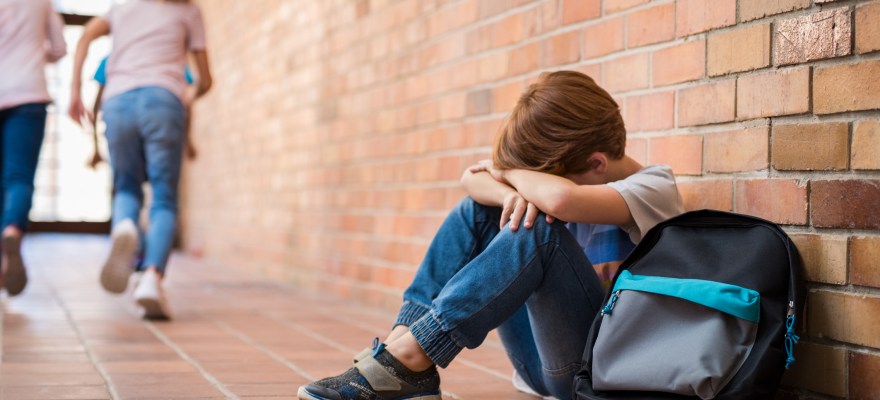
Signs of Bullying
School should be a learning environment for kids, not a stressful one. School should also be a safe place, yet many children experience bullying, a form of youth violence and an adverse childhood experience that can leave a person with traumatic memories for a long time. Many kids won’t come out and say they’re victims of this aggressive and unwanted behavior. But experts say there are several signs of bullying parents can look out for if they suspect their child is being bullied.
Unfortunately, bullying is very common throughout the country. In fact, according to the Centers for Disease Control and Prevention, 1 in 5 high school students reported being bullied at school in the last year. And that’s just in-person bullying. More than 1 in 6 high school students reported being cyberbullied in the last year.
Signs of Bullying: What is Bullying?
Bullying refers to any form of unwanted aggressive behavior in which someone intentionally and repeatedly causes another person injury or discomfort. It also involves an observed or perceived power imbalance. Bullies can hit, kick, trip or do other physically harassing actions, or be verbally aggressive, such as in the form of name-calling or teasing.
So, why do kids bully other kids? There are many reasons, according to Ross Ellis of STOMP Out Bullying.
“Abusive or overly strict parents can cause kids to act out and continue the cycle of what they’ve learned at home,” Ellis explained. “A common reason that a kid is a bully is because he or she lacks attention from a parent at home and lashes out at others for attention. This can include neglected children, children of divorced parents or children with parents under the regular influence of drugs or alcohol.”
And we can’t rule out the fact that there are adult role models who are bullies, too, according to Ellis. These can include parents, teachers, coaches and others.
“Sometimes the bullying behavior stems from a lack of discipline,” Ellis said.
Signs of Bullying: What to Do If you Suspect Your Child is Being Bullied
Bullying isn’t fun, and no mom or dad wants their child to be a victim of this unwanted behavior. And awareness is especially important when it comes to helping and supporting your child.
“Awareness is important for parents as children go through life along with providing time and a safe place for open, honest communication,” Abbey Sangmeister, therapist, parent burnout coach and founder of Evolving Whole, said. “Having this foundation is a good foundation for understanding and watching for signs of bullying.”
5 Signs of Bullying
- Complaining of ailments, like stomach aches. If your child has begun to frequently complain of headaches or stomach aches, it might be a good idea to have a conversation with them.
“Keeping track of the pattern of these ailments can rule out other health issues. Kids’ behaviors do fluctuate at times as they grow but when there are sudden changes in behavior or mood it is a good idea to look at what else might be going on or changes in their environment,” Sangmeister said.
Mariel Benjamin, LCSW, vice president, groups and content for Cooper and program director at the Mount Sinai Parenting Center, added that your child might not be faking an ailment to stay home from school. A stomach ache could be an indicator of stress.
“The stomach ache is likely very real,” Benjamin said. “Stress triggers the sympathetic nervous system to activate cortisol into the bloodstream, triggering the fight-or-flight response. Excessive triggering of this stress response can cause digestive issues.”
- Changes in sleep and eating habits. This might signal a problem, too. Signs of bullying can include an increase in nightmares, trouble sleeping, loss of appetite or overeating.
- More aggressive behavior at home or toward siblings. New aggressive behaviors can indicate that your child is experiencing bullying and is displacing the aggression that they feel and cannot act on.
“Your child is taking out their anger on a person or thing that poses less of a risk for them to attack,” Benjamin said.
- Becoming withdrawn. If your child is withdrawing more or avoiding communication with parents or other close adults, it’s a good time for you to slow down and create time for connection and conversation. Drastic changes in hygiene and appearance may also signal something is going on, Sangmeister said.
- Unexplained injury. Sometimes, having cuts, bruises or other injuries that lack explanation can be among the signs of bullying.
Signs of Bullying: What To Do Next
When it comes to noticing signs of bullying, it’s important to realize that not every victim of bullying will show the symptoms listed above. Often, teens can exhibit many of these behaviors without being a victim of bullying, explained Mendi Baron, LCSW, CEO, Moriah Behavioral Health.
“A few issues may not mean anything specific but eventually the flags add up and become a reason for concern,” Baron said. “If you suspect bullying, it’s critical that parents maintain active communication and contact with the children, as well as with the school, because bullying is the kind of challenge that is often kept a secret due to the nature of the bullying itself.”
Ellis, of STOMP out Bullying, recommends parents who feel strongly their child is being bullied not show how upset they are. It can make things worse.
But be prepared to contact your child’s school–or even the police–if need be.
“Find out pertinent and detailed information about what the bullies are doing, dates, times, places and actions. Document everything,” Ellis said. “Find out any threats that have been made toward your child, and if it pertains to outside of school, contact the police. Contact the school and make an appointment with the principal for a face-to-face meeting.”
Wanna read more stuff like this? Get our newsletters packed with ideas, events, and information for parents in Staten Island.
"*" indicates required fields

